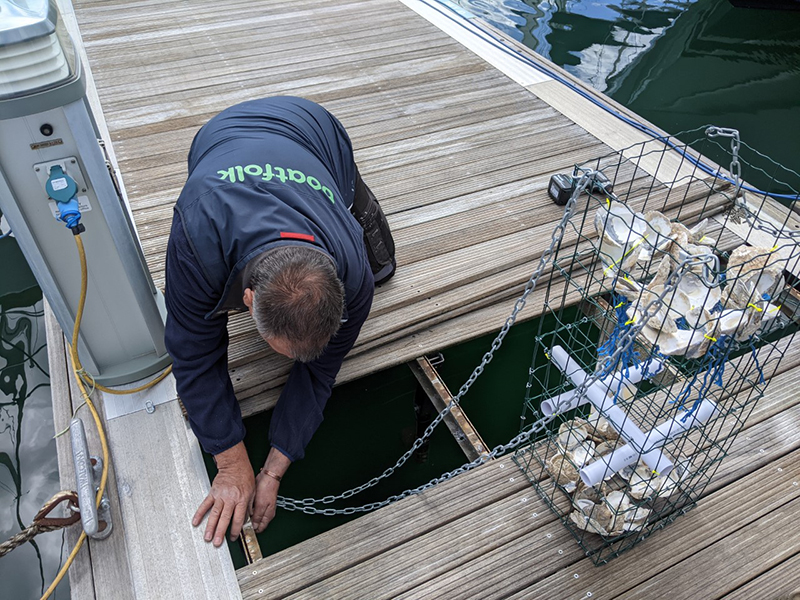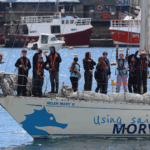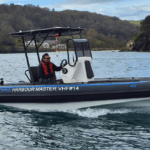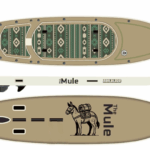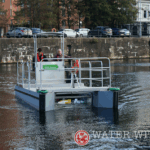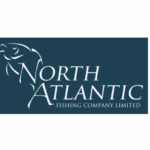The Seahorse Trust and Portsmouth University have joined forces with boatfolk, as part of a re-wilding project which aims to create a safe habitat for one of the UK’s native seahorse species, the protected Short Snouted Seahorse, along with a variety of other vibrant marine wildlife.
boatfolk has worked with its partners to install the first Biohut cage system at Haslar Marina in Portstmouth. The Biohut is an artificial marine aquatic nursery which provides food and shelter to many juvenile species. It restores the ecological nursery function that is lost when natural shallow coastal waters become urban environments. A specialist gauge rope has also been added to give the Short Snouted Seahorse the ideal environment to thrive, hunt and hide from prey.
The re-wilding project forms part of boatfolk’s wider environmental program, Coastline Deadline, designed to back projects which have a positive and measurable impact on the coastline.
Ben Lippiett, marina manager at Haslar, said: “We are thrilled to be working with our partners at Portsmouth University and The Seahorse Trust to create these wonderfully beneficial Biohuts under our pontoons. Re-wilding projects like this make a real difference by providing juvenile species with a safe place to thrive, which can be a challenge in urban harbours like ours. Through our underwater cameras, we hope this project will educate and inspire people about the huge amount of biodiversity within our seas. We’re also pleased to name the Short Snouted Seahorse as the new mascot for Haslar Marina! The innovative Biohut systems have been specifically designed to help these majestic and protected creatures thrive.”
Both of the UK’s native seahorse species – the Spiny and the Short Snouted – were granted protected status in 2008 under the Wildlife and Countryside Act.
Neil Garrick-Maidment, Executive Director and Founder of The Seahorse Trust, said: “The immensely important work that Portsmouth University are doing in partnership with boatfolk and us at The Seahorse Trust will make a significant difference to the seahorses found in the marinas. By providing additional, secure habitats for the seahorses, boatfolk’s marinas will become a safe haven for so many important species. The biodiversity that will build up under the pontoons will act as a natural filter and ecological reservoir, enhancing the site and making a considerable difference to the carbon footprint of the marinas, as well as increasing biodiversity in the region. When this is rolled out to other boatfolk sites along the South Coast, the Biohuts will become an important habitat for so many critical species, helping to enhance and protect our natural world.”
Dr Ian Hendy from The Institute of Marine Sciences at Portsmouth University, adds, ” Whilst many studies report on the decline of coastal biodiversity, we will be reporting on how the Biohuts have created new and rich safe habitats for a vast number of baby, rare, and endangered aquatic animals in the marinas of the Solent. This project will greatly improve the vibrant wildlife, the environment and will benefit communities local to the Solent.”
Beside its ecological benefits, the Biohut is a useful tool to collect scientific data on coastal colonisation by juvenile fish, as well as raising public awareness on marine biodiversity. The boatfolk team urges budding marine biologists and green minded citizens alike to watch the underwater cameras (HERE) and get in touch to say what wildlife they have spotted.
boatfolk currently operates more than 4,000 berths spanning across 11 marinas located around the UK coastline with plans to install more of the Biohuts in other South Coast marinas.
For further information about boatfolk and its sustainability initiatives, visit www.coastlinedeadline.co.uk








